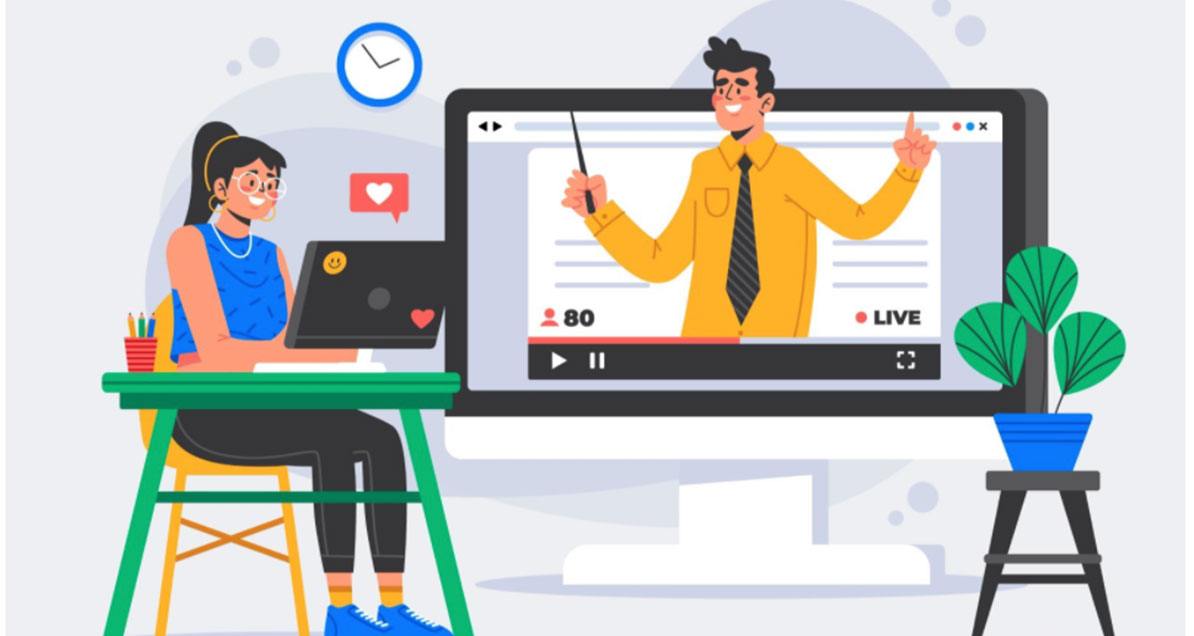
The Rise Of Digitalization in the Education Sector
The advancement in digital technology has brought about significant development in the world of education. It is evident that the education sector is no longer limited to face-to-face teaching and learning. Through digitalization in education, methods of teaching, as well as learning, has greatly changed. We have now entered the era where unprecedented ideas are unfolding in our education industry where educators will need to keep up with technological advancement such as tools and platforms for teaching.
Digitalization in the education sector have paved the way for various advanced teaching and learning methods such as:
-
Online courses
Online courses are accessible online and developed by professional educators who are proficient in their specific field. Learners can experience real-time learning as these education experts will input their knowledge in their own self-designed courses. -
Online assessments
Digitization gave way educators to assess learners through online means, making the examination process convenient for both teachers and students. -
Digital reading materials
With access to the Internet, learners have access to multimedia content such as videos, interactive presentations, and hyperlinks. -
Animation
This is an engaging and interactive approach that would grab the learner’s attention. Visual representations such as animated infographics and videos allow students to grasp the topics being taught in a more fun and comprehensible manner.
While there are many more notable technological advancements that digitalization has help to develop, let’s look at some of the impacts that digitalization has brought to the education sector:
-
Personalized Learning
In the traditional classroom setting, designing teaching methods based on the students’ specific learning needs is practically impossible. With the need for completing the course within a stipulated timeframe, educators are unable to focus on the individual learning needs of the learners. This, in turn, can result in a lack of interest among the students and affects effective learning.
In the traditional classroom setting, designing teaching methods based on the students’ specific learning needs is practically impossible. With the need for completing the course within a stipulated timeframe, educators are unable to focus on the individual learning needs of the learners. This, in turn, can result in a lack of interest among the students and affects effective learning.
-
Better Sharing of Information, Content and Materials
With Internet access across digital devices, the ease of sharing educational content has increased significantly. While sharing the educational resources used to be such a hassle especially with physical materials, it is now possible with a single click.
A number of digital platforms such as Google tools, E-Learning websites and applications, learners can also work on group assignments with ease. Digitalization have also made projects and lessons easier as they can be accessed and completed remotely. It also creates a connected learning environment and promotes coordination among the students. It helps in enhancing the collaboration skills and improving the learning outcomes.
-
More Student Engagement
Digitalization has made the learning environment more engaging for the students. With the traditional approach, students showed a less engagement rate as they were confined to the classroom with one educator, textbooks, and the same teaching approach. But through digitalization, the way of learning has evolved. Now, students can easily access a wide range of video content, interactive sessions, and much more.
This makes the learning process interesting and fun for the students and increases their curiosity to know more. In addition, digital platforms provide students the choice to learn from different top educators across the globe.
-
Increases Learning Opportunity for Educators
Digitalization in the education sector is not only reap benefits for learners but also educators. It helps educators to enhance their teaching methods based on the needs of the students. Latest developments of E-Learning applications allow educators to receive feedback from their students so they can enhance their teaching approach. While mapping the educators’ performance was difficult in the physical classroom setting, it can become easy through digitalization.
To conclude, digitalization has indeed facilitated in the elevating the quality of education to greater heights. It has allowed increased the interaction between the students and the educators, and new digital learning tools, applications and method have indeed boosted the interest of learners in wanting to learn more. Digitalization evolves as an advanced solution to enhance and modernize the learning and teaching process. We look forward to many more digital transformations in the education sector such as gamification, augmented/virtual reality, artificial intelligence and more. It is without a doubt that digitalization empowers educators and learners and brings in a positive impact in the education sector.
